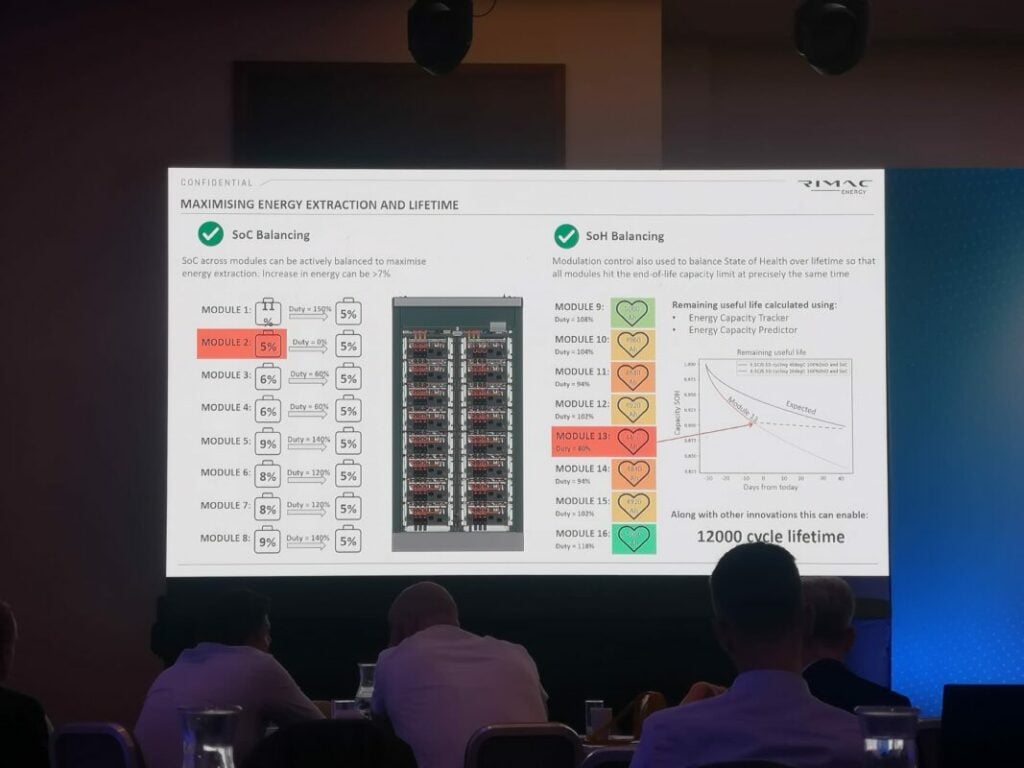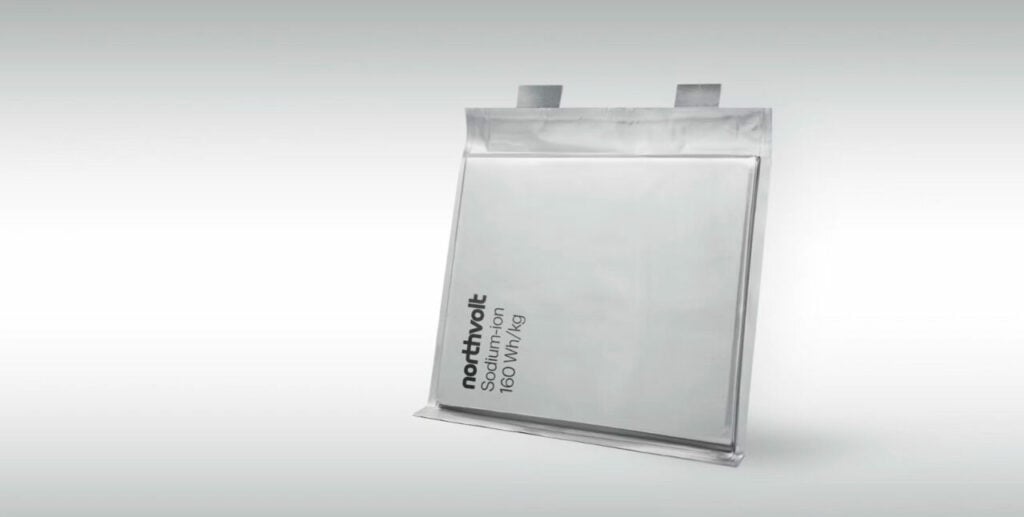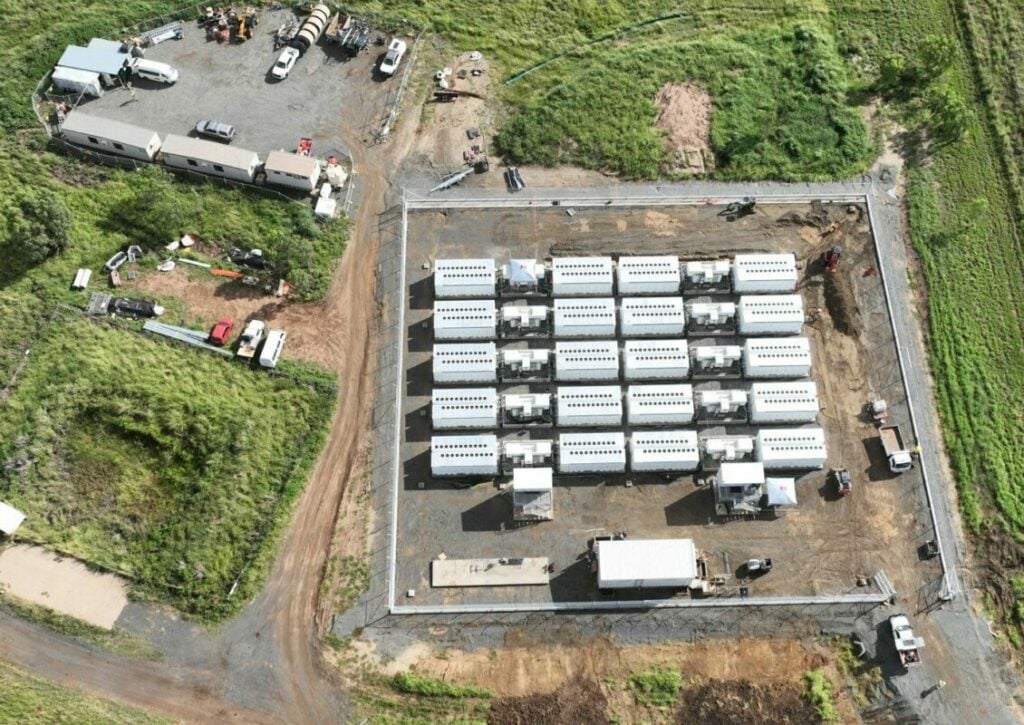


As the year draws to a close, here are the ten most-read news stories on Energy-Storage.news in 2023.
It’s an interesting mix of familiar names and startups, of established technologies and innovators, of scales and applications of energy storage and reading through the list gives us an idea of some of the topics that were the most important to, or caught the imagination of, our readers.
Enjoy 12 months of exclusive analysis
- Regular insight and analysis of the industry’s biggest developments
- In-depth interviews with the industry’s leading figures
- Annual digital subscription to the PV Tech Power journal
- Discounts on Solar Media’s portfolio of events, in-person and virtual
It’s been another fascinating year for technologies, markets, regulation and policy and we can’t wait to see what 2024 holds in store. Thanks to all of you for your support, and for your work to make this industry a truly exciting one to cover every day.
Click the headline to read the full story.
10. Northvolt and Altris develop ‘breakthrough’ 160 Wh/kg sodium-ion battery for energy storage
21 November 2023
Sweden-headquartered battery gigafactory startup Northvolt and technology partner Altris unveiled their collective efforts in developing a sodium-ion battery that they claimed is of ‘breakthrough’ energy density.
Theirs registered 160Wh/kg. For reference, the International Energy Agency’s Global EV Outlook 2023 lists average lithium-ion battery energy densities ranging from 120Wh/kg to 260Wh/kg.
“Our sodium-ion technology delivers the performance required to enable energy storage with longer duration than alternative battery chemistries, at a lower cost, thereby opening new pathways to deploying renewable power generation,” Northvolt CEO Peter Carlsson said.
9. Tesla Megapack on fire in ‘minor incident’ at battery storage site in Australia
27 September 2023
Energy storage system safety remains a key priority of the industry, and of course, of our readers. It remains an unfortunate but unchangeable fact that while fires are rare, even minor incidents like this one attract major attention.
As a 50MW/100MWh BESS project in Queensland, Australia, reached the final stages of commissioning, one of its 40 Tesla Megapack units caught fire. Project owner and developer Genex Power said it was a “minor” incident and characterised the fire as “low intensity” and the fire was contained to the single Megapack without propagating to other units.
8. World’s largest pumped hydro plant project progresses in Queensland, Australia
9 June 2023
While lithium-ion battery technologies dominate new grid-scale energy storage announcements and many people see newer technologies like flow batteries and green hydrogen as contenders in longer duration applications, we shouldn’t forget that pumped hydro energy storage (PHES) still provides the lion’s share of global storage capacity.
In June, we reported that key contracts had been awarded for work on the 5GW Pioneer-Burdekin Pumped Hydro Project in Queensland, Australia. Water2Wire, a joint venture (JV) between GHD, Mott MacDonald and Stantec was picked by the state government for Front-End Engineering and Design (FEED) duties.
7. Sunrun ‘rapidly transitioning to a storage-first company’, CEO says
6 November 2023
Mary Powell, CEO of Sunrun said in an earnings call to explain quarterly results that the company, one of the US’ biggest residential solar PV installers, is “rapidly transitioning to a storage-first company”.
Courtesy of our colleagues at PV Tech, it was noted that Sunrun’s storage attachment rates reached 33% in Q3 2023, well above the national average of 11.1% recorded by Wood Mackenzie. The company saw a 131% year-on-year increase in its storage deployments, with a key focus on the California market.
6. ‘World-first’ grid-scale sodium-ion battery project in China launched
3 August 2023
As seen from the sodium-ion battery developed by Northvolt-Altris also featuring in this list, sodium has been big news for some time in R&D circles.
In Qingdao, China, what is claimed to be the world’s first grid-scale battery storage system based on sodium-ion technology is being installed at a data centre, indicating that sodium as a commercial prospect may soon be big news too.
According to technology provider Great Power, the system at Qingdao North Coast Data Center (QNCDC) boasts an energy density of 150Wh/kg. It will participate in delivering ancillary services in addition to reducing the data centre’s energy costs.
5. Moss Landing: World’s biggest battery storage project is now 3GWh capacity
2 August 2023
Vistra Energy’s lithium-ion landmark at the former gas turbine halls of Moss Landing, California, has become closely associated with the scale-up of the BESS industry. The first phase of 300MW/1,200MWh, was completed in 2020, followed by another 100MW/400MWh phase in 2021.
Completed in June this year, Vistra’s third phase at Moss Landing Energy Storage Facility brought the total output to 750MW and capacity to 3,000MWh. It was highly symbolic of the overall CAISO market in California, which around that time reached 5GW of grid-scale BESS deployments in its service area.
4. LFP cell average falls below US$100/kWh as battery pack prices drop to record low in 2023
27 November 2023
Some good news, as it was confirmed by BloombergNEF that lithium battery prices fell again in 2023 after the downward trend was bucked in 2022.
Pack prices fell 14% on average from last year to a record low of US$139/kWh and by the end of this decade could be as low as US$80/kWh. Packs made in China are 11% cheaper than those made in the US and 26% cheaper than European-made packs.
BloombergNEF head of energy storage research Yayoi Sekine noted that battery prices have “been on a rollercoaster” in the past couple of years.
3. Enervenue to mass produce newest ‘30,000 cycle’ metal-hydrogen batteries in Kentucky
8 September 2023
The nickel-hydrogen battery technology developed by US startup Enervenue has attracted attention for its claimed superiority and cost competitiveness: capable of 30,000 cycles and intended to be used for short- and long-duration energy storage applications.
Enervenue launched the newest iteration of its Energy Storage Vessel (ESV) device, the 3kWh equivalent to a battery cell powering its technology, which will be built from a new factory in Kentucky, US. The company claimed it has more than 7GWh of booked customer orders for delivery beginning in 2025.
2. Rimac unveils ‘most technically advanced BESS in the world’, SineStack
27 September 2023
Energy storage and electric vehicle (EV) industry interest alike were attracted towards what Rimac, an OEM for high-end EVs, would produce when it turned its focus to stationary energy storage.
And Energy-Storage.news was first to bring you the big reveal in September, as Rimac product engineering manager Roger Moorhouse unveiled SineStack, a BESS solution claimed to have the best cycle life in the industry, at the Energy Storage Summit Central and Eastern Europe.
SineStack also features distributed inverter topology which enables independent control over every 18 cells in a pack per inverter. Rimac will start mass production in 2025 with 300MW annual production capacity from its factory in Croatia, ramping up to 1GWh after a year and subsequently to more than 10GWh.
1. CATL battery storage unit disconnected at Marine Corps installation amid ‘concerns’ about project
11 December 2023
The most-read story came late in the year and we have yet to see what the consequences might be, if any. Battery storage equipment made by CATL, the world’s biggest lithium battery manufacturer, was disconnected at a project delivered for the US Marine Corps by utility Duke Energy.
It comes after years of China-US trade tensions in adjacent industries including solar PV, and with echoes of the way Huawei was eventually locked out of supplying communications infrastructure in the US. But, with Duke Energy having said the battery equipment was connected with “robust network security and safeguards fully in place”, and CATL having said its BESS only contains “passive” devices which do not collect data or connect directly to the grid, it remains to be seen what the outcome will be of the sudden disconnection, coming after Senator Marco Rubio and others accused CATL of close links with the Chinese Communist Party (CCP).

